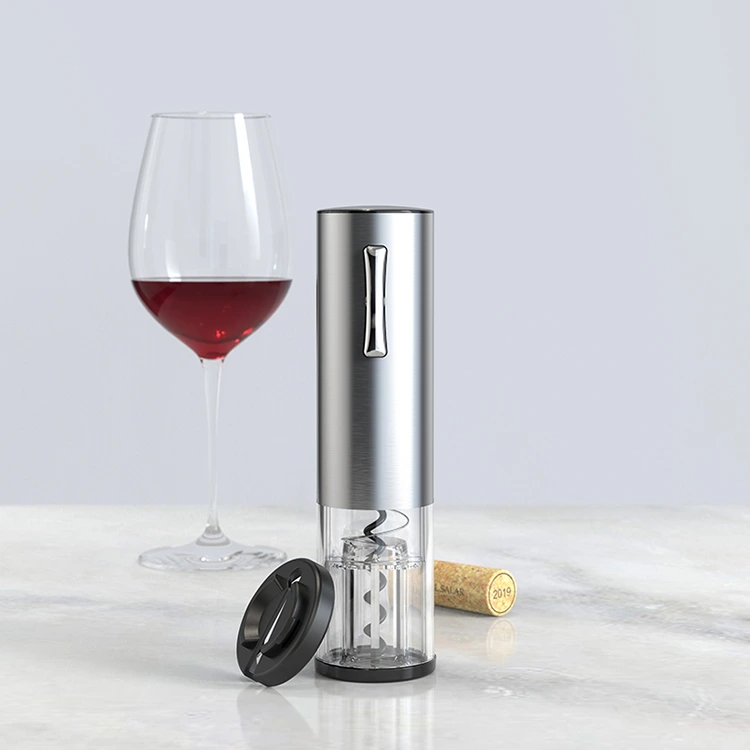How to Maintain a Bottle Opener: A Guide to Longevity and Performance
2025-06-26
A bottle opener is an essential tool found in many households, bars, and restaurants. Whether it’s a classic hand-held opener, a wall-mounted version, or an elegant multi-tool, maintaining it properly ensures its durability and smooth operation for years to come. In this essay, we will explore key practices for maintaining a bottle opener to extend its lifespan and maintain optimal performance.
1. Regular Cleaning
One of the simplest yet most important aspects of bottle opener maintenance is regular cleaning. Over time, residue from bottles, caps, and even fingerprints can accumulate on the opener, affecting its appearance and functionality.
How to Clean: After each use, rinse the opener under warm water to remove any debris or liquid that may have accumulated. For stubborn dirt, use a soft cloth or sponge with mild dish soap to gently scrub the surface. Be sure to dry the opener completely to prevent rusting, especially if it's made of metal.
Deep Cleaning: If the bottle opener is heavily stained or has been exposed to salty or acidic substances (like in coastal areas), a more thorough cleaning might be necessary. Soaking it in a mixture of vinegar and water for 10-15 minutes can help dissolve any stubborn grime. Afterward, rinse thoroughly and dry with a soft cloth.
2. Lubrication and Rust Prevention
For metal bottle openers, one of the biggest threats to longevity is rust. Metal openers, particularly those made of steel or iron, can corrode over time due to exposure to moisture. To keep your opener in top condition, regular lubrication is key.
Lubrication: Apply a small amount of food-safe lubricant to the joints or hinges (if applicable) of the bottle opener. This ensures smooth movement, especially for openers with moving parts. A dab of olive oil or mineral oil can be sufficient. Avoid petroleum-based products as they might affect the taste of beverages or pose a health risk.
Rust Prevention: To prevent rust, store the bottle opener in a dry place. If you live in a humid environment, consider placing a desiccant or moisture-absorbing packet near the opener to keep moisture at bay.
3. Storage
Proper storage is crucial in maintaining the condition of your bottle opener. Whether it’s a compact hand-held model or a larger wall-mounted unit, how and where you store it can impact its longevity.
Hand-held Openers: If you have a portable bottle opener, store it in a drawer, on a keychain, or in a designated place where it won’t be subjected to excess moisture, dirt, or damage. Using a protective case can be a good idea if you often carry it around.
Wall-mounted Openers: For wall-mounted openers, ensure that they are securely fastened to prevent damage or dislodging. Clean the area around the opener regularly to avoid accumulation of grime or liquid, which can deteriorate the material over time.

4. Avoiding Overuse and Damage
While a bottle opener is designed for frequent use, overuse or misuse can lead to damage. Be mindful of the materials you’re working with and always use the opener for its intended purpose.
Avoid Using Excessive Force: A bottle opener is a tool meant to leverage the cap, but applying excessive force can bend or break it. Always use the opener gently, and never attempt to open bottles with different types of seals that the opener is not designed for.
Inspect Regularly: Periodically inspect the opener for signs of wear, such as bent prongs, rust, or loose screws. If the opener is showing signs of significant damage, it may be time to replace it or repair it to maintain safe functionality.
5. Material-Specific Care
Different materials require unique care to ensure their longevity. Bottle openers can be made from various materials, including stainless steel, plastic, wood, and even high-end metals like brass.
Stainless Steel: This material is durable and resistant to corrosion, but it still requires periodic cleaning and lubrication to maintain its appearance and functionality. Stainless steel openers should be stored away from harsh chemicals that could cause discoloration.
Plastic: Plastic openers are lightweight and durable, but they can become brittle over time if exposed to extreme temperatures. They should be cleaned with mild soap and water and stored in a cool, dry place.
Wood: Wooden bottle openers are often prized for their aesthetics, but wood requires special care to avoid drying out and cracking. Occasionally apply a food-safe wood conditioner to maintain the wood's natural moisture and luster. Avoid soaking wooden openers in water for long periods.
Brass and Copper: Brass and copper openers develop a unique patina over time, which many people find appealing. However, if you prefer to maintain the shiny appearance, polishing with a brass or copper cleaner will help. Be cautious of acidic substances, as they can damage these metals.
6. Repairing and Replacing Parts
Over time, parts of your bottle opener may wear down or break. For example, a hinge may loosen, or a prong may bend. In these cases, it's important to either repair or replace the damaged parts to maintain the opener's functionality.
Hinge and Joint Maintenance: If the hinge becomes loose or stiff, apply lubrication and tighten any screws. If it’s irreparably damaged, consider replacing the hinge or opting for a new opener.
Replacing Broken Parts: Some high-quality openers come with replaceable parts, such as caps or prongs. If these parts are damaged, check with the manufacturer or supplier for replacement options.
Conclusion
Maintaining a bottle opener is a simple yet effective way to ensure that this everyday tool continues to perform at its best for many years. By regularly cleaning, lubricating, and storing it properly, and by avoiding misuse, you can keep your bottle opener in top shape. Remember that the material of the opener will determine the specific care methods needed. With these maintenance practices in mind, your bottle opener will continue to be a reliable tool for opening beverages whenever needed.
As a professional manufacturer and supplier, we provide high-quality products. If you are interested in our products or have any questions, please feel free to contact us.


